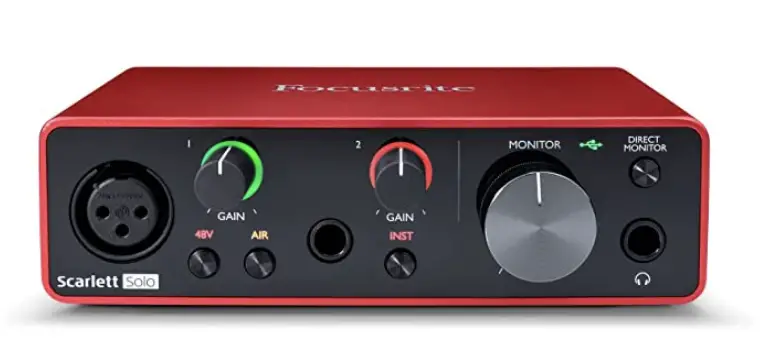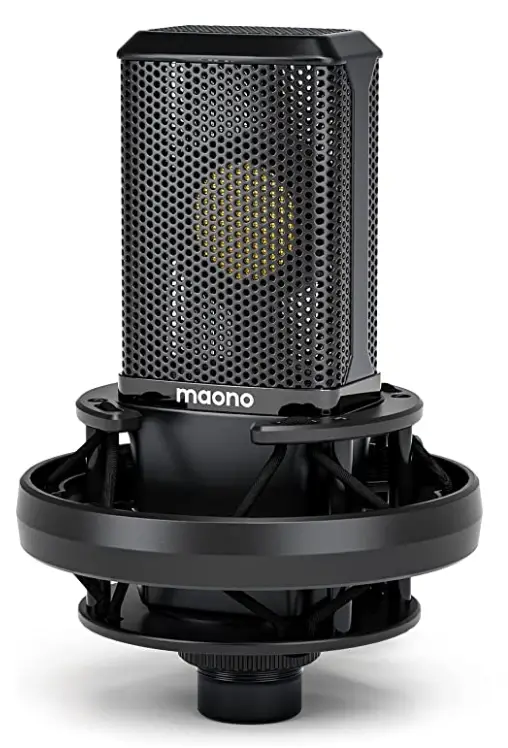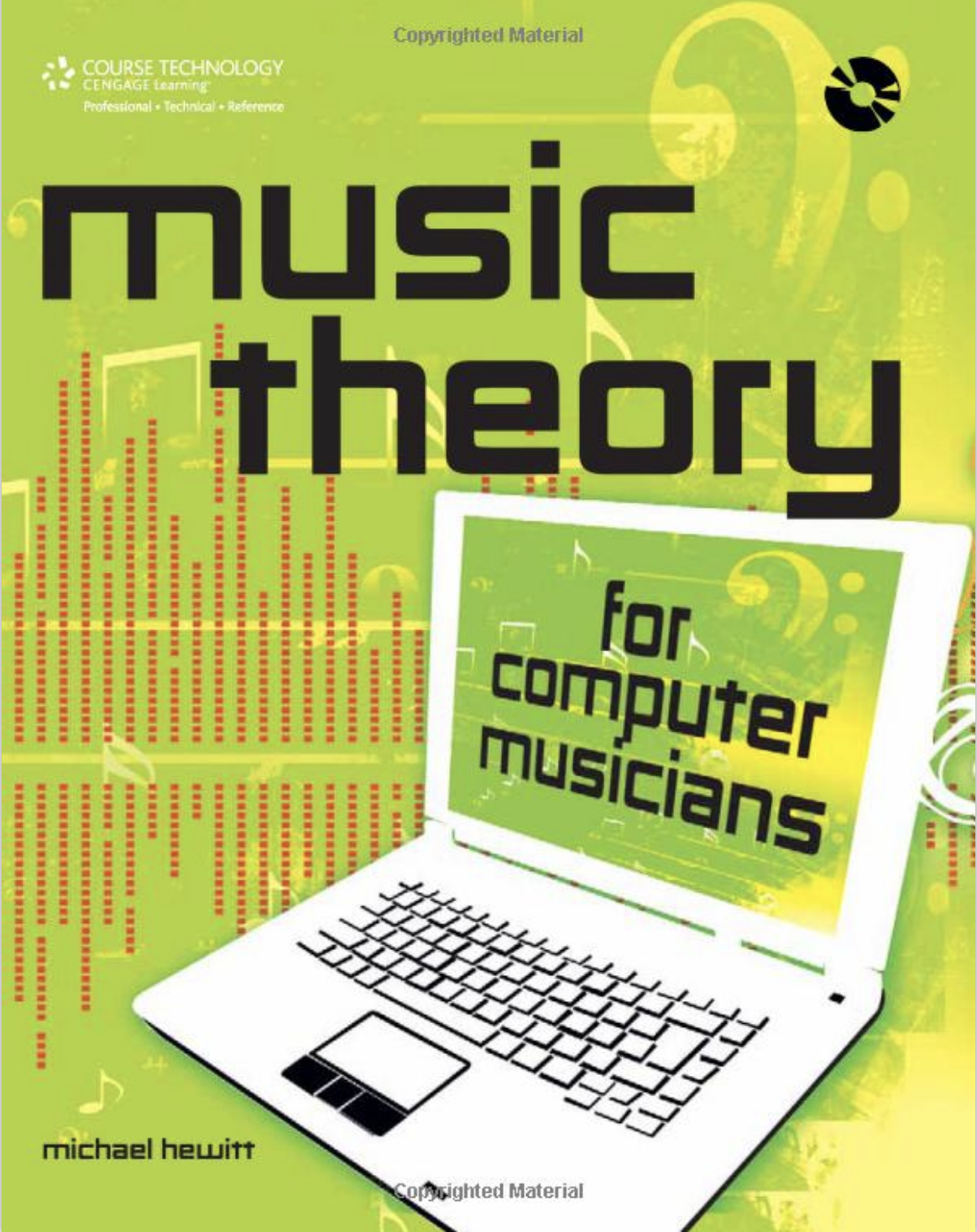So you want to become a music producer?
Never fear, because this article will show you how to start producing pro-level music from home, step-by-step.
What Is A Music Producer?
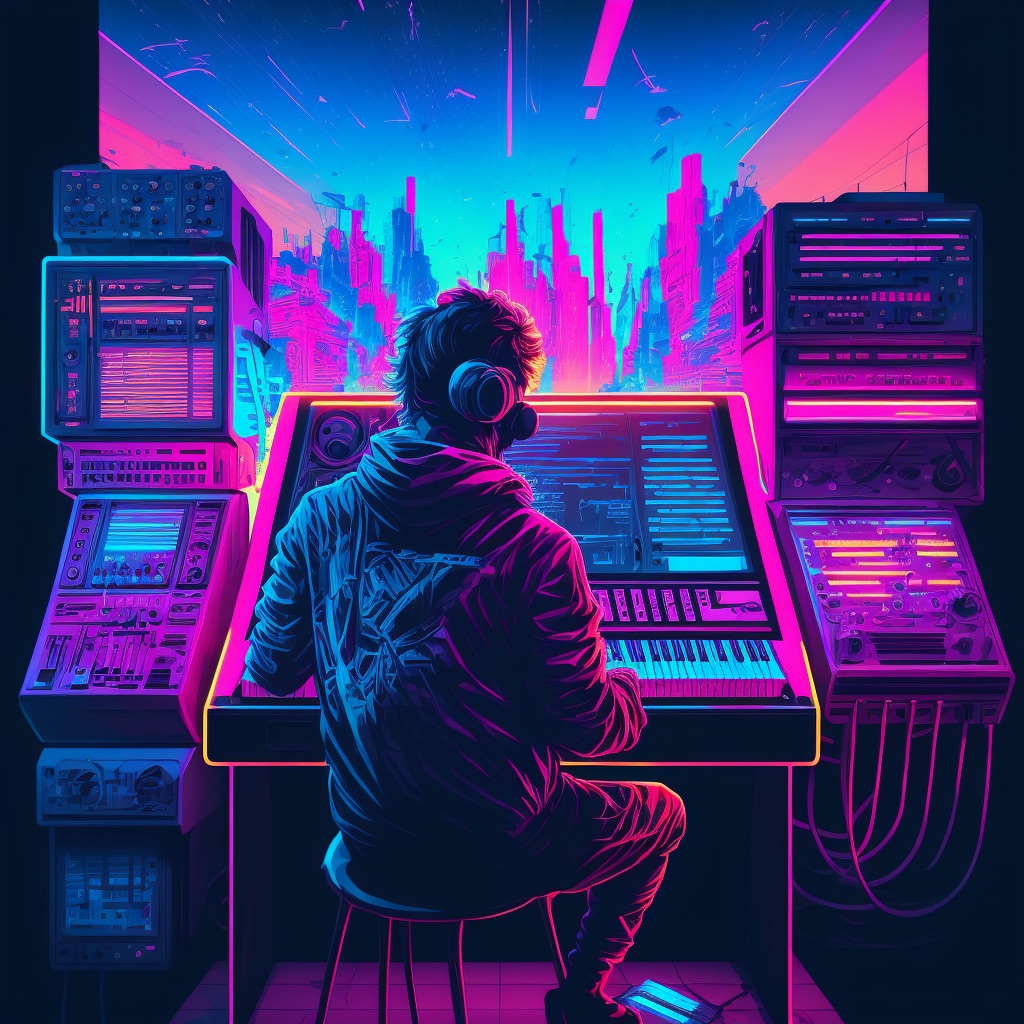
A music producer is someone involved with the creation, shaping, or guiding of the sound of individual music tracks and/or the overall vision of a song or album. Music producers may assist artists with recording their project and brining their vision to fruition.
Today, a music producer is really just someone who makes music and handles the actual production side of the process (recording, editing, mixing, mastering).
In a more traditional sense...
A music producer's role can vary depending on the project and the artist, but in general, they are responsible for guiding the creative direction of a project, working with the artist to develop their songs, and overseeing the recording and production process.
They also work closely with the musicians, engineers and other professionals involved in the production process to ensure that the music is of the highest quality.
Some of the key responsibilities of a music producer include:
- working with the artist to develop and refine their songs
- selecting and hiring session musicians and engineers
- overseeing the recording process, including setting up and operating recording equipment
- making decisions about the overall sound and direction of the music
- mixing and mastering the recordings
- managing the budget and schedule of the project
- working with the artist to develop their image and marketing strategy
Music producers can work in a variety of genres, from pop and rock to hip-hop, electronic, and classical music. They can work with established artists or help to develop new talent, and they may work in a recording studio, a home studio, or in a remote location.
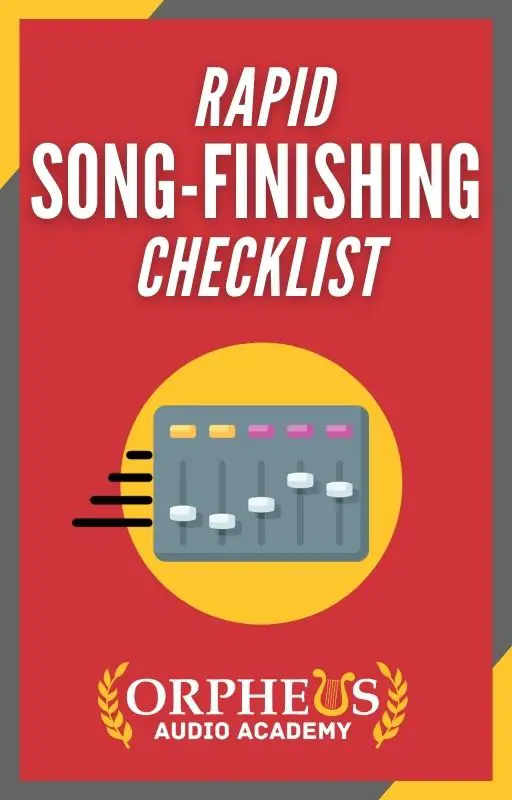
Create Better Songs, Faster
Click below to download my free song-finishing checklist to help you create radio-ready songs without taking months to complete them.
How Much Does A Music Producer Earn On Average?
The median annual wage for music producers and directors was $79,000 in May 2021, according to a survey by the US Bureau of Labor Statistics. However, music producers at the top of their game can earn much more, and some producers can earn millions of dollars per year.
The average annual income for a music producer can vary greatly depending on factors such as experience, location, and the type of music they produce.
It's worth mentioning that income of a music producer may come from multiple sources such as royalties, session fees, advances, and other forms of compensation.
Additionally, there are many factors that can impact a music producer's earning potential, such as the type of music they produce, the level of success of the artists they work with, and the type of projects they take on.
Also, it's important to consider that many music producers are self-employed and may not have a steady salary, so their income can fluctuate (like yours truly for example).
Some music producers may work on multiple projects simultaneously, while others may work on one project at a time. It's also worth noting that many music producers also work in other roles, such as songwriting, performing or engineering, which can add to their income.
Do I Need To Go To College For Music Production?

You absolutely do NOT need to go to college to learn music production. In fact, it's my opinion that there are much better ways to invest the money that you would have spent on college.
Instead, you could invest in personal mentorship, or online courses which will be much more focused and efficient at getting you where you want to go.
Unless you want to go into the STEP fields, college is increasingly looking like just a big scam.
And I say all of this as someone who went to college. I went to one of the largest public universities in the country before dropping out and enrolling in a trade school for audio engineering, but it was really more like an apprenticeship.
There were only 5 other students in my class, and our teacher wasn't some professor who had never done anything, but an actual commercial recording studio owner.
Not only that, but he taught us AT his studio, on his actual equipment, and we got to record REAL bands.
And it only cost me a little over $8,000 for two years. The experience was far better than traditional higher education at a fraction of the cost.
I know not everyone can experience this, but you're far better off hunting for a mentor and offering to pay them to teach you, or investing in online courses.
This isn't to say you can't learn music production from going to college. You can, but I just thing there are far better uses for your time, energy, and money.
How Many Hours A Day Should I Produce Music?
As a general guideline, it is recommended to practice consistently for at least 30 minutes to 1 hour per day. The amount of time you should practice music each day depends on your individual goals and skill level.
If you're a beginner, practicing for 30 minutes to 1 hour per day is a good starting point. As you become more proficient, you may want to increase the amount of time you practice each day.
However, it's important to note that the quality of practice time is more important than the quantity. It's better to practice for shorter periods of time but with focus and concentration, rather than for longer periods of time but with distractions or lack of engagement.
Additionally, it's important to take breaks every 30 minutes to an hour, to avoid burnout and to let your mind and body rest.
Something else to consider is what is known as the "10,000 Hour Rule".

Create Better Songs, Faster
Click below to download my free song-finishing checklist to help you create radio-ready songs without taking months to complete them.
The 10,000 Hour Rule

The 10,000 hours rule is a popularized concept that suggests that it takes approximately 10,000 hours of practice to become an expert in a particular field.
The idea was popularized by Malcolm Gladwell in his book "Outliers: The Story of Success" published in 2008, where he cited research by Anders Ericsson, a psychologist who studies expertise and skill acquisition, to support this claim.
The idea behind the 10,000 hours rule is that in order to become an expert in a certain field, one must practice consistently and deliberately for a significant amount of time. This time is then needed to develop the necessary skills and knowledge to become proficient at a specific task.
However, it's important to note that the 10,000 hours rule is not a hard and fast rule, and the amount of practice time required to achieve mastery in a field can vary depending on the individual, the activity, and the field itself.
Additionally, the quality of practice is also important, as it's not only the number of hours of practice that matters but also the intensity, focus and engagement during the practice sessions.
Moreover, experts in a field may have innate talents or other advantages that allow them to reach mastery more quickly than someone without those advantages.
Ultimately, the key to becoming a proficient musician is consistent, focused practice over time. The number of hours you practice each day will depend on your individual goals and skill level, but the most important thing is to practice consistently and focus on improving your skills.
What Jobs Can I Get As A Music Producer?

As a music producer, there are a variety of jobs you can pursue, including (but not limited to):
- Recording studio producer: You can work in a recording studio as a producer, recording, mixing and mastering music for artists and bands.
- Independent producer: You can work independently and produce music for a variety of artists and clients, such as independent singers, bands, and record labels.
- Film and television producer: You can work in the film and television industry and produce music for movies, TV shows, and commercials.
- Video game producer: You can work in the video game industry and produce music and sound effects for video games.
- Live event producer: You can produce live music events, such as concerts, festivals, and tours.
- Music supervisor: You can work as a music supervisor for film, TV, and advertising, finding and licensing music for use in media projects
- Music educator: You can teach music production in a university, college, or even start your own blog or YouTube channel to teach others.
- Sound designer: You can work as a sound designer for film, TV, and video games, creating sound effects and soundscapes for different projects.
- Music business: You can work in the music business, such as in A&R, artist management, or music publishing.
- Music artist: Build your own fanbase of people who love your music and will pay you for your music, merch, concerts, fanclub, etc.
It's important to note that many of these jobs may require additional skills or experience, such as a degree in music production or audio engineering, or a strong portfolio of work.
Additionally, the music industry is competitive, and breaking into the field can be challenging. Networking, persistence and a willingness to take on unpaid or low-paying gigs can be helpful.
In general, this is why I recommend simply going independent and finding clients on your own using tools like Upwork, Fiverr, SoundBetter, and others.
Is Making Music Hard?
Making music can be challenging, but it can also be very rewarding. It's not easy to create something new, and it takes a lot of time, effort and dedication to master the various elements of music production such as composing, arranging, recording, mixing, and mastering.
However, it's never been easier to learn, and with the right mindset, resources, and guidance, anyone can make music. There are many music production software and hardware, tutorials, online courses and other resources available to help you get started.
It's also important to note that everyone's journey to making music will be different. Some people may find it easier to learn certain aspects of music production than others, and some people may have more natural talent or innate abilities that help them learn more quickly.
Additionally, making music is a creative process, and it can be hard to come up with new ideas, or be satisfied with the outcome of your work. It can be helpful to stay open-minded, experiment and be patient with yourself.
How Do I Start Making Music At Home?
To get started making music from home, you need a few vital pieces of equipment.
But don't worry! Nothing that will break the bank.
In fact, you can easily get started for just $260.
1. Get A Digital Audio Workstation
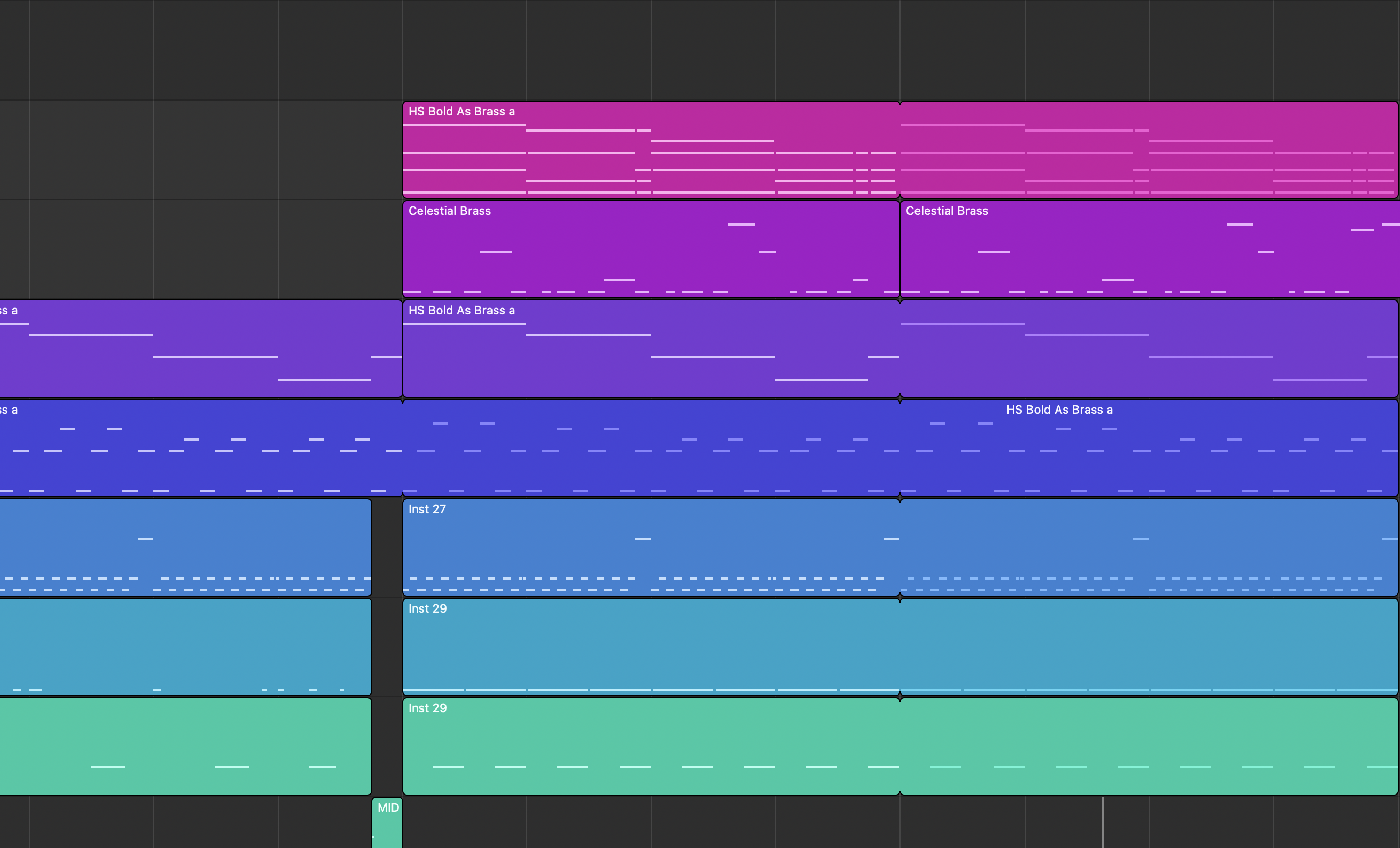
If you are interested in producing music, then you'll need a computer. I'll assume you already have that.
Next, you'll need a digital audio workstation (DAW). A Digital Audio Workstation is like your canvas that allows you to compose, arrange, and mix your music productions.
DAWs also usually come with their own collection of synths, virtual instruments, and FX that you can use to start writing and composing songs right away.
One of the DAWs with the best built-in collection of instruments is Logic Pro X.
However, that is only for Mac, so if you have a PC, a great alternative is Cubase or Studio One.
But you don't even have to buy a DAW to get started. Garageband is free for Mac, and there are also free DAWs available for PC, like
Tracktion Waveform Free.
If you already own a computer, you can download free DAW software to start producing music.
Once you have your DAW, you'll want to invest some time watching tutorials on how to use the software so you know your way around the basic tools and features.
DAWs can be pretty intimidating at first, but once you get the hang of it, it's pretty easy to use and you'll know it like the back of your hand.
Which DAW is Best For Beginners?
2. Get Necessary Audio Equipment
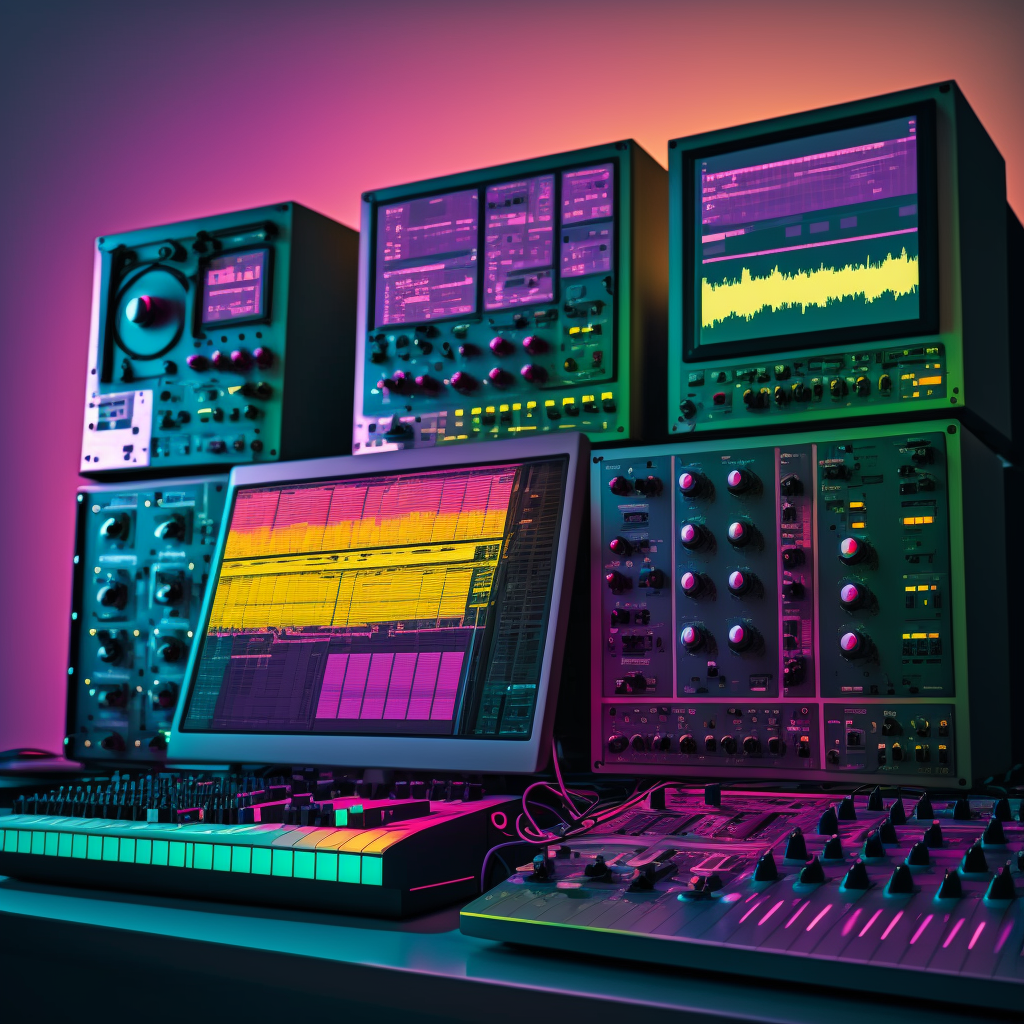
Now that you have your digital audio workstation, you'll also need some audio gear to start recording.
Below you can find my top recommendations, and all of this gear combined should cost you LESS than $300.
Best Beginner Music Studio Gear Under $300
Audio Interface - Focusrite Scarlett Solo
The Focusrite Scarlett Solo audio interface is a solid choice for those looking for a high-quality, affordable option for recording and producing music. It offers the high-quality pre amps you need to get started recording pro audio. The sound quality is excellent and it's also very portable, making it easy to take on the go.
Microphone (Plus Mic Stand, Pop Filter, XLR Cable) - Maono PM500
The Maono PM500 is a fantastic and versatile large diaphragm condenser microphone, and the one I use in my studio for recording vocals. Not only is it great quality and well-built, but it comes with a mic stand, pop filter, and XLR cable, so you don't have to buy these separately.

Create Better Songs, Faster
Click below to download my free song-finishing checklist to help you create radio-ready songs without taking months to complete them.
If you want to learn how to use this equipment to set up your home studio, step-by-step, then check out my article here.
3. Schedule Time To Produce
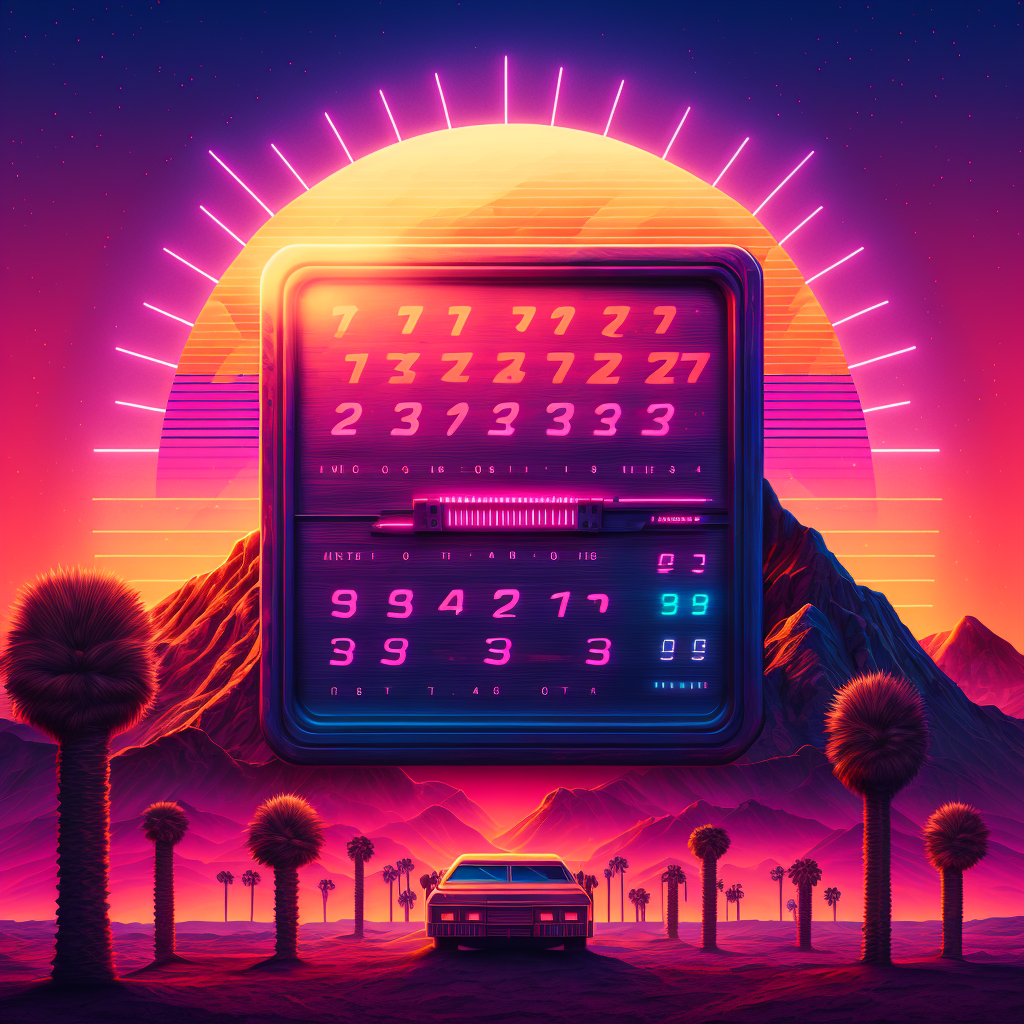
Don't just hope you'll feel like it, or that you'll find time. You won't.
Instead, you should:
Set specific goals:
Determine what you want to accomplish with your music and set specific, measurable goals to work towards.
Create a schedule:
Set aside dedicated time each day or week for working on your music. Make sure to schedule in time for both creating and rehearsing.
Stick to your schedule:
Treat your music production time like any other important appointment and make sure to keep to your schedule as much as possible.
Prioritize your time:
Be mindful of how you spend your time during your scheduled music production sessions. Make sure to focus on the most important tasks and avoid distractions.
Be flexible:
Remember that life happens and you may need to adjust your schedule from time to time. Be open to adjusting your schedule as needed but always make sure to prioritize your music production time.

Create Better Songs, Faster
Click below to download my free song-finishing checklist to help you create radio-ready songs without taking months to complete them.
4. Learn Basic Music Theory
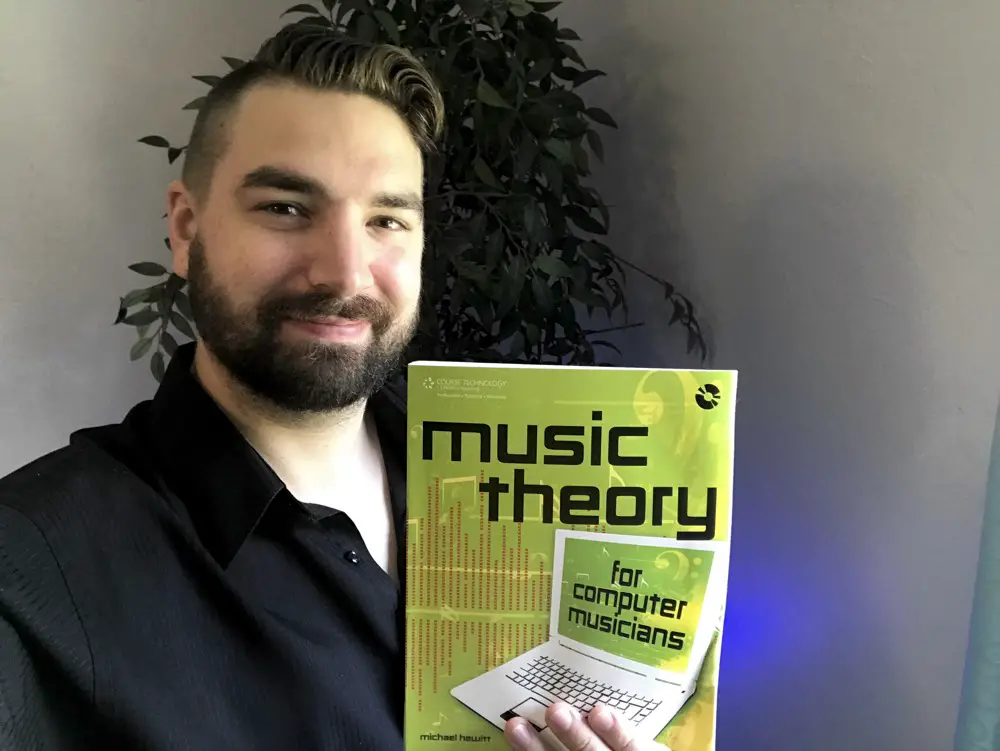
You don't need to know music theory to start producing music.
I started by simply hitting a bunch of random keys on my keyboard until I found some that didn't sound horrible together.
That said, here are some basic concepts which knowing can make the process of production go a little smoother.
- Pitch: Pitch refers to the highness or lowness of a sound. It is determined by the frequency of a sound wave.
- Scales: A scale is a series of pitches arranged in ascending or descending order. Some common scales include major, minor, and pentatonic.
- Intervals: An interval is the distance between two pitches. Intervals can be classified by their size (such as a minor second or a major third) and their quality (such as perfect or diminished).
- Chords: A chord is a group of three or more pitches played simultaneously. Chords can be classified by their structure (such as triads or seventh chords) and their function (such as tonic or dominant).
- Key: A key is a group of pitches and chords that work together to create a sense of tonality. A piece of music may be in a specific key, such as C major or A minor.
- Time Signatures: Time signature is a notation that tells us how many beats are in a measure, and what kind of note gets one beat.
- Notation: Standardized system of written symbols that represent musical sounds and silences.
- Harmony: Harmony refers to the way that chords and melodies work together in a piece of music to create a sense of tension and release.
- Form: Form refers to the overall structure of a piece of music, including things like the number of sections, the order in which they appear, and how they relate to each other.
- Rhythm: Rhythm is the element of music that defines the timing of events within a piece of music. It includes elements like beat, meter, and tempo.
For a more in-depth crash course on music theory that is also relevant for the home music producer, then check out the book below:
Music Theory For Computer Musicians
Many DJs, gigging musicians, and electronic music producers understand how to play their instruments or make music on the computer, but they lack the basic knowledge of music theory needed to take their music-making to the next level and compose truly professional tracks.
Music Theory for Computer Musicians explains these music theory fundamentals in the most simple and accessible way possible. Concepts are taught using the MIDI keyboard environment and today's computer composing and recording software.
By reading this book and following the exercises contained within it, you, the aspiring music producer/computer musician, will find yourself making great progress toward understanding and using these fundamentals of the music language.
The result will be a great improvement in your ability to write and produce your own original music!
5. Learn Arrangement

Music arrangement refers to the process of organizing and structuring the different elements of a piece of music, such as the melody, harmony, rhythm, and instrumentation.
It involves deciding on the order of the sections of a song (verse, chorus, bridge, etc.), the instrumentation and orchestration, the use of dynamics and effects, and other elements that contribute to the overall sound and structure of a piece of music.
Put another way...
Imagine you want to make a pizza, you have the basic ingredients like dough, cheese, and tomato sauce, but you can add different toppings, change the order of the ingredients, play with the seasoning, and even the cooking method to make it your own special recipe.
That's how music arrangement works, you have a song that has its ingredients like melody, harmony, rhythm and instrumentation, you can play with them and make it your own creation.
You can add extra elements, change the structure, and give it your personal touch, making it a dish that only you can make.
Arrangement is actually more important than post-production (like mixing and mastering).
If arrangement is deciding on the ingredients and amounts thereof, mixing and mastering is the equivalent how the pepperonis look and are placed on the pizza.
Here are 5 tips to help you with basic music arrangement:
1. Keep It Simple
One of the most important aspects of music arrangement is to keep things simple and not overcomplicate the arrangement.
Avoid adding too many elements or instruments, and focus on the core elements that will drive the song forward.
2. Vary The Texture
Varying the texture of the arrangement can help to keep the listener engaged and create interest throughout the song.
Experiment with different instruments and sounds to create different textures and moods.
3. Use Space Effectively
Space is just as important in an arrangement as the sounds themselves. Use silence, reverb, and other effects to create a sense of space and depth in the arrangement.
4. Use Dynamics
Dynamics play a crucial role in music arrangement, and they can be used to create tension and release in the song. Experiment with different volume levels and use them to create a sense of climax and resolution in the arrangement.
5. Experiment With Different Chord Progressions
Chord progressions are the foundation of any song, and experimenting with different progressions can help to create a unique and interesting arrangement.
Try different combinations of chords and use them to create tension and release in the arrangement.
If you're stuck, try copying the chords from songs you love. Chords cannot be copyrighted so it's 100% ethical to reuse chords (the legacy music industry does this all the time).
It's worth mentioning that these tips are not exhaustive and many other factors play a role in a good music arrangement.
Things like tempo, melody, lyrics, and many others should be considered as well. Additionally, the type of music, the intended audience, and the context of the song are also essential to be aware of.
6. Learn Mixing & Mastering

Mixing and mastering are two separate stages in the audio post-production process.
Mixing is the process of adjusting and balancing the individual elements of a song, such as the vocals, drums, guitar, and other instruments, to create a cohesive and polished final mix.
It involves adjusting the levels, panning, EQ, compression, and other effects of each element to create the desired balance and texture of the song.
Mixing is about shaping the individual elements of a song to work together and create a cohesive and pleasing overall sound.
The two most fundamental tools to mixing are EQ and compression.
You can check out my detailed guides to mastering these two tools by clicking below:
Mastering, on the other hand, is the final step in the audio production process.
It is the process of preparing the final mix for distribution and playback on different platforms. It involves adjusting the overall volume and balance of the mix, applying equalization and compression, and making any final adjustments to ensure the song sounds its best across different playback systems and devices.
Mastering is about taking the final mix and making it sound as good as possible and ready for distribution.

Create Better Songs, Faster
Click below to download my free song-finishing checklist to help you create radio-ready songs without taking months to complete them.
7. Tune Your Room
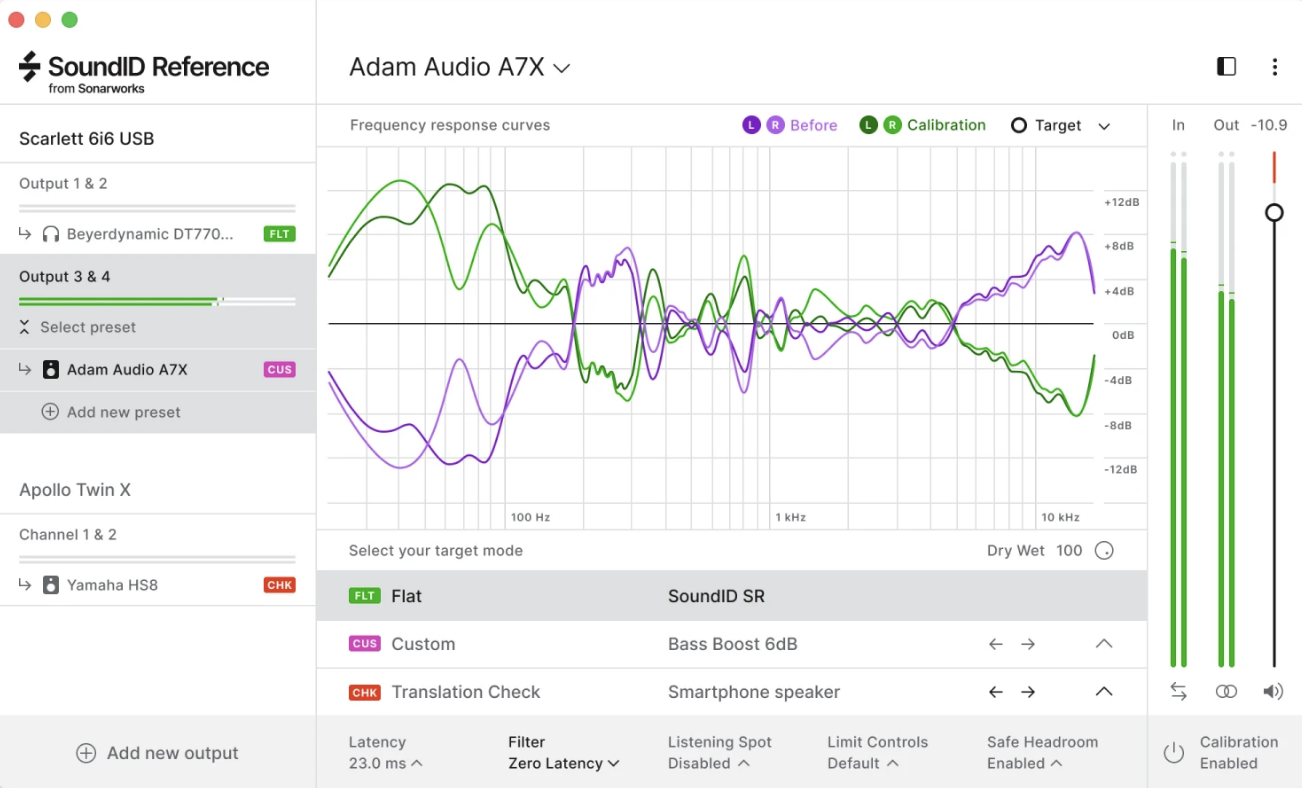
The natural acoustics of the room you are creating music in can trick your room into thinking certain frequencies are present (or not present) when this isn't the case. You can correct these issues by "tuning" your room with software.
It's basically like giving your room a sonic makeover.
Room tuning is the process of adjusting and optimizing the acoustic properties of a room to improve the sound quality of audio recordings and playback.
It's important because the sound of a room can have a huge impact on the final mixes.
You can use a tool like Sonarworks SoundID Reference to tune your room so that when you listen back to your mix, and make adjustments, you're accurately hearing your audio.
The goal of room tuning is to create a neutral and accurate sound environment, like a blank canvas, where you can work with your recordings without any coloration or unwanted sound artifacts.
8. Acoustically Treat Your Room
One step further than tuning your room is actually acoustically treating your room. Whereas tuning your room is adding an EQ to your DAW while mixing so you can hear more accurately, acoustic treatment actually addresses the physical audio issues in the room.
This will help you produce better mixes.
Acoustic treatment involves reducing reflections, echoes, and other unwanted sound artifacts that can occur in a room.
This can include things like adding bass traps, sound diffusers, and sound absorbers to the walls, ceiling, and floor. These materials can help to control the reflections and echoes, and create a more balanced and neutral sound environment.
Think of it like this...
Imagine you're trying to have a conversation in a big empty room, it would be hard to hear each other clearly, because the sound waves would be bouncing all over the place.
That's where acoustic treatment comes in, it helps to control the sound waves and make sure they're going where they're supposed to, so you can hear everything clearly.
In music production, having a treated room can help you to make more accurate mixing and mastering decisions and it can also improve the overall listening experience, making your music sound more polished and professional.
So, it's definitely worth considering investing in some acoustic treatment for your music production space.
9. Invest In Education
You can go far learning on your own from experimenting and watching YouTube videos, but at some point, your progress will be hindered unless you invest in some structured education.
I'm NOT talking about going to college.
Instead, I recommend finding a mentor, or buying some online courses.
Like I said above, I technically did go to college and graduated with an audio engineering degree, but the school I went to was much more like a mentorship where I learned from a master who actually owned a commercial recording studio.
So if you can't find a mentor, then definitely invest in an online course from someone you trust.
10. Invest In Gear & Plugins
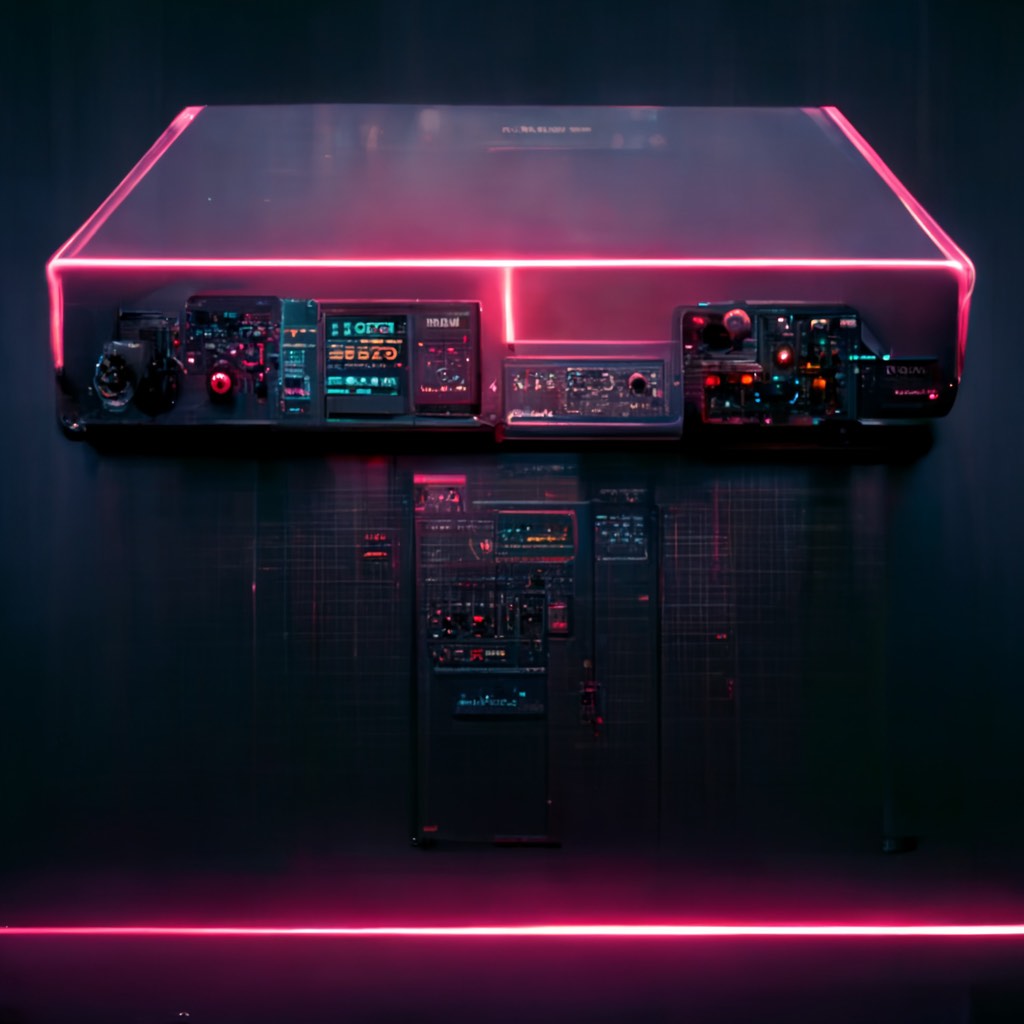
Finally, the last step in your journey to becoming a pro music producer is to upgrade your gear and plugins, and even this step is kind of optional, since there are tons of successful people out there using budget gear.
However, upgrading your mics, interface, and software can help you produce better and faster...
But you don't need to worry about investing in these items until you completed steps 1-9.
If you want to know what gear to upgrade to first, check out my video below:
And there you have it!
Follow these steps and you'll become a music producer in no time!
Finish More Radio-Worthy Songs, Faster!
If you want a proven step-by-step formula for mixing radio-worthy tracks from start-to-finish...
Create Pro-Mixes, Faster
Click below to download my free song-finishing checklist to help you create radio-ready songs without taking months to complete them.
This checklist will walk you through a proven step-by-step mixing and mastering process so that you don't ever have to guess or wonder what to do next.
You'll know exactly what to do, and when, so you can quickly mix, master, and finish more tracks.
I hope you found this post valuable!
If so, feel free to share, and let me know in the comments below…

